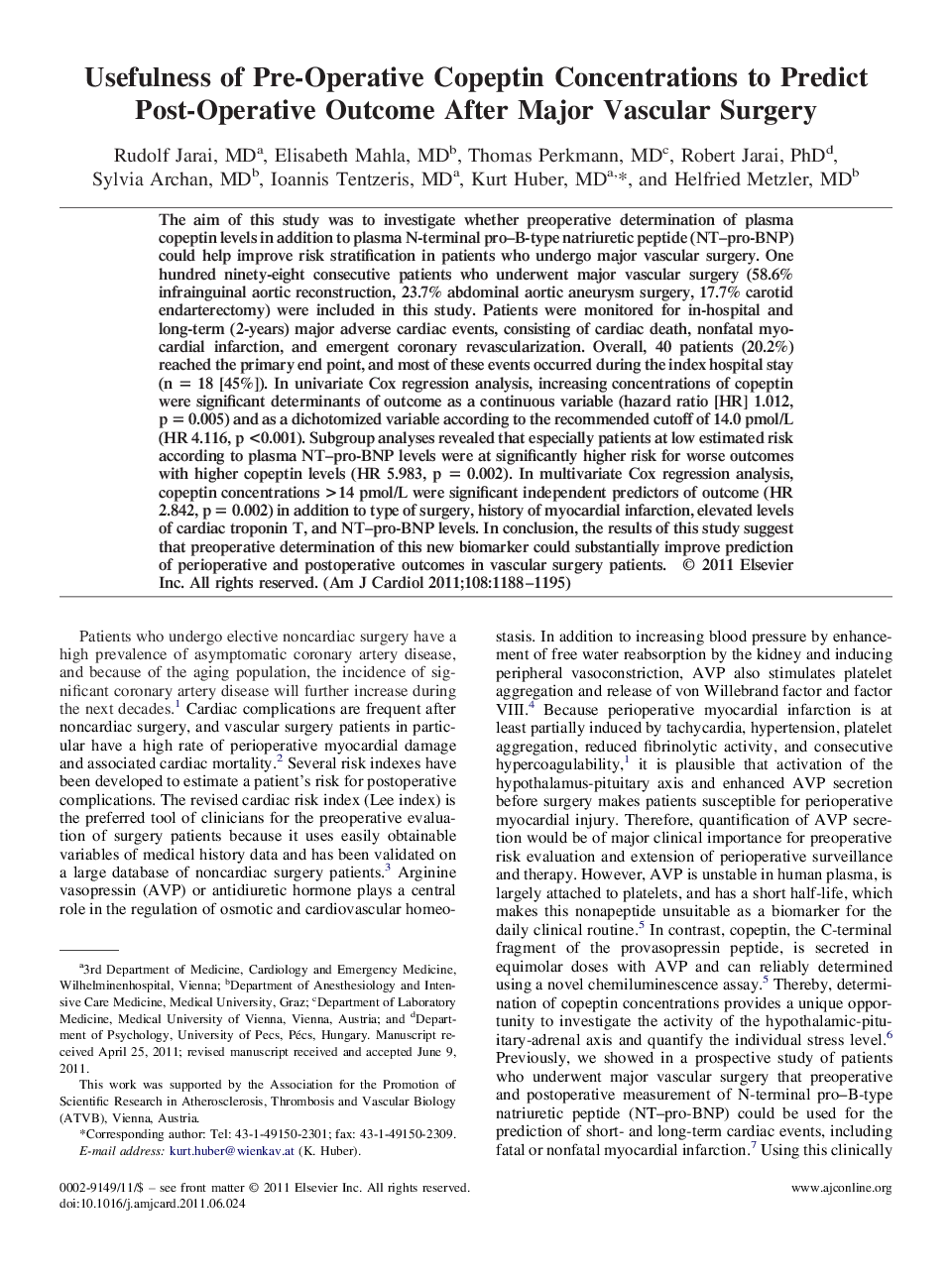| Article ID | Journal | Published Year | Pages | File Type |
|---|---|---|---|---|
| 2856755 | The American Journal of Cardiology | 2011 | 8 Pages |
The aim of this study was to investigate whether preoperative determination of plasma copeptin levels in addition to plasma N-terminal pro–B-type natriuretic peptide (NT–pro-BNP) could help improve risk stratification in patients who undergo major vascular surgery. One hundred ninety-eight consecutive patients who underwent major vascular surgery (58.6% infrainguinal aortic reconstruction, 23.7% abdominal aortic aneurysm surgery, 17.7% carotid endarterectomy) were included in this study. Patients were monitored for in-hospital and long-term (2-years) major adverse cardiac events, consisting of cardiac death, nonfatal myocardial infarction, and emergent coronary revascularization. Overall, 40 patients (20.2%) reached the primary end point, and most of these events occurred during the index hospital stay (n = 18 [45%]). In univariate Cox regression analysis, increasing concentrations of copeptin were significant determinants of outcome as a continuous variable (hazard ratio [HR] 1.012, p = 0.005) and as a dichotomized variable according to the recommended cutoff of 14.0 pmol/L (HR 4.116, p <0.001). Subgroup analyses revealed that especially patients at low estimated risk according to plasma NT–pro-BNP levels were at significantly higher risk for worse outcomes with higher copeptin levels (HR 5.983, p = 0.002). In multivariate Cox regression analysis, copeptin concentrations >14 pmol/L were significant independent predictors of outcome (HR 2.842, p = 0.002) in addition to type of surgery, history of myocardial infarction, elevated levels of cardiac troponin T, and NT–pro-BNP levels. In conclusion, the results of this study suggest that preoperative determination of this new biomarker could substantially improve prediction of perioperative and postoperative outcomes in vascular surgery patients.
